Protein intake is vital for muscle growth. There’s no debate there. However, is it really necessary to chug down protein shakes before and after workouts? Then there’s the high protein diet with eggs and bacon for breakfast and grilled fish or chicken breasts for lunch/dinner. This does seem to be the standard diet for most bodybuilders these days.
However, do we actually need so much protein to build muscle? Let's dive into the world of muscles and protein intake to separate the facts from myths and discover a healthy and balanced way to gain muscle.
Role of Protein in Muscle Building


Your muscles are made of protein. This alone signifies just how important protein is for muscle building.
Protein is made up of smaller units known as amino acids. Of the 20 different types of amino acids, only 11 are synthesized in your body. The remaining nine are known as the essential amino acids as you have to supply them from your diet.
Amino acids are necessary for muscle protein synthesis. Every time you hit the gym or engage in intense physical activity, tiny tears occur in your muscles. The right combination of amino acids are rushed to the scene to repair and build bigger and stronger muscles. While this may sound counterproductive, it is the magic behind muscle growth.
Can you Build Muscle without Enough Protein?


Yes you can gain muscle without lots of protein, but you do need some amount of protein to build muscle tissue.
The protein intake for muscles is like using steel for fortifying bridges. Without adequate steel for reinforcing it, the bridge gets weaker and becomes unable to handle heavy loads. Similarly, without protein, your muscles will be unable to handle the weights you lift. So cracks appear in the bridge (muscle) structure. So, when you're aiming for muscle growth, keep in mind that amino acids are like an efficient team of builders inside your body, reinforcing and expanding your muscle architecture.
How Much Protein Does Our Body Need?
It’s pretty clear that we need protein to build muscle but just how much protein is enough to ensure muscle growth?
Your individual protein requirements are based on multiple factors such as age, sex, activity levels, and overall health. Given below is a general guideline for your protein needs.
- Sedentary lifestyle: On average, a sedentary person requires just 0.8 grams of protein per kilogram of body weight. That means, a 70 kg person needs only 56 grams of protein a day.
- Beginner bodybuilder/moderate intensity: If you are new to bodybuilding or a moderately active individual, you will need about 1.2 to 1.7 grams of protein per kilogram of body weight. So, if you weigh 70 kg, you will need around 84 to 119 grams of protein.
- Advanced Bodybuilder/Intense activity: If you're into serious training, you will need more protein to support muscle repair and growth. You should aim for 1.4 to 2.0 grams of protein per kilogram of body weight. Thus a 70 kg person can take 100 to 140 grams of protein.
The "optimal" protein intake for muscle growth is a greatly debated topic. It’s best to consult a registered dietitian or a healthcare professional to get personalized guidance, especially if you are taking any medications.
What Happens If You Eat Too Much Protein?
Have you heard of the saying, "The poison is in the dose"? While protein is crucial, moderation is the name of the game. When you take in too much protein, it creates excessive stress on the organs involved in processing the protein, leading to unwelcome consequences.
- Kidney problems: Your kidneys filter out the waste products of protein metabolism, particularly nitrogenous compounds such as urea. When the protein intake exceeds your body's requirements, the nitrogen load gets significantly elevated. This can compromise your renal functions and over time damage your kidneys.
- Nutrient imbalances: When you focus too much on protein intake, you are likely to neglect other nutrient sources such as vegetables, fruits, and whole grains. This can lead to deficiencies in vitamins, minerals, and fiber, affecting your overall health.
- Weight gain: Excess protein gets stored as body fat, not muscle.
- Digestive discomforts: Protein-packed feasts can result in bloating, gas, and an upset stomach. Burping or farting in the gym is embarrassing enough. The bigger concern is that these digestive discomforts can negatively impact your workout performance.
Will I Lose Muscle if I Don't Hit My Protein?
Beyond muscle building, protein plays multiple roles in your body. It is needed for tissue growth and repair, immune function, and energy production. They are required for maintaining fluid and acid-base balance in the body. Your immune system relies on protein to make antibodies and enable tissue regeneration and wound healing.
If protein intake is too low, your body breaks down your muscle tissue to get the amino acids it needs for other vital body functions. This negatively impacts your muscle mass and strength.
But there’s no need to panic. Your body is resilient and adaptable. If your diet and training are generally on point, then missing your protein target for a couple of days isn’t going to cause a muscle meltdown.
Is It Harder to Gain Muscles without Protein Powder?
Protein powders are synonymous with bodybuilders. From whey concentrate to isolates, vegan specials, and specific amino acid combos such as BCAAs, the market is flooded with a large variety of protein powders and promises of muscle gains. But, can you build muscle without protein powder?
As discussed earlier, adequate protein intake is a must for bodybuilding and muscle gain. Protein powders are a convenient way to achieve your protein targets for the day. Protein shakes are easy to mix and use. They are portable - you can carry your protein shake to the gym for a pre/postworkout drink.
However, they are not a necessity for muscle gain. You can easily meet your daily protein recommendations from whole food sources such as eggs, chicken, nuts, lentils, soy, cottage and cheese,as examples. Additionally, here are some high protein low carb snacks you can incorporate into your diet.
Diet & Training Tips to Grow Muscles
Despite taking protein shakes consistently and lifting weights regularly, if aren’t seeing adequate muscle gain, then something is evidently lacking in your muscle-building regimen.
You may need to apply a more balanced approach to your protein intake for muscle building:
- Varied Protein Sources: You should diversify your protein sources to ensure a wide range of amino acids. Include plenty of natural food such as eggs, fish, chicken, lentils, nuts, and so on rather than relying solely on protein bars and shakes. If you are vegan, there are plenty of plant-based protein sources as well.
- Timing is Key: Time your protein intake around your workout - this can be before, during, and/or after workouts. Space out protein-rich meals throughout the day to provide a steady supply of amino acids. Combining protein with coffee in your preworkout shakes is a great way to kickstart your workouts.
Now let's take a look at - Besides protein what helps build muscle?
If you are serious about building muscle, you also need to look beyond protein intake and weight lifting.
- Prioritize Calories: Low-calorie diets can ruin your muscle-building goals. Consume enough calories to support muscle growth and your overall energy demands.
- Focus on Whole Foods: You should focus on having nutrient-dense whole foods that are rich in vitamins, minerals, and fiber, not just protein.
- Carbohydrates and Fats: Make sure to have adequate carbohydrates for energy and fats for hormone regulation.
- Hydration: Drink plenty of fluids, especially water to ensure proper hydration. This helps maintain muscle function and aids in recovery.
- Sensible Supplementation: Consider supplements wisely. Supplements can be an essential tool for bridging nutritional gaps.
- Recovery Days: In your muscle-building regime, rest days should be given as much importance as workout days. Your muscles need time to heal and grow after intense workouts. Pushing yourself too much and overtraining actually hinders muscle-building progress.
- Sleep: Your body repairs and grows during sleep. Damaged muscle tissue is rebuilt and strengthened during sleep. So skimping on sleep can negatively impact muscle recovery and considerably reduce your muscle gains.


Conclusion

Protein is indeed vital for muscle growth. However, taking more protein than needed can lead to unwanted desirable consequences such as weight gain or even kidney damage. And not taking adequate protein can affect your muscle gains. Striking the right balance is important to ensure optimum muscle growth.
You should also keep in mind that protein is just one part of the puzzle. You need to follow a balanced diet that offers carbs and fats to fuel your workouts, as well as, vitamins, minerals, fiber, and water to create the best environment for building muscle.
Take a look at your training regimen - progressive overload, compound movements, and proper technique are required to sculpt muscle definition. Rest and recovery days are as important as your workout days as this allows your muscles can flourish without wear and tear.
A consistent and holistic approach to reinvent yourself that includes the right nutrition, training, rest, and recovery will definitely help you reach your muscle-building goals.





















